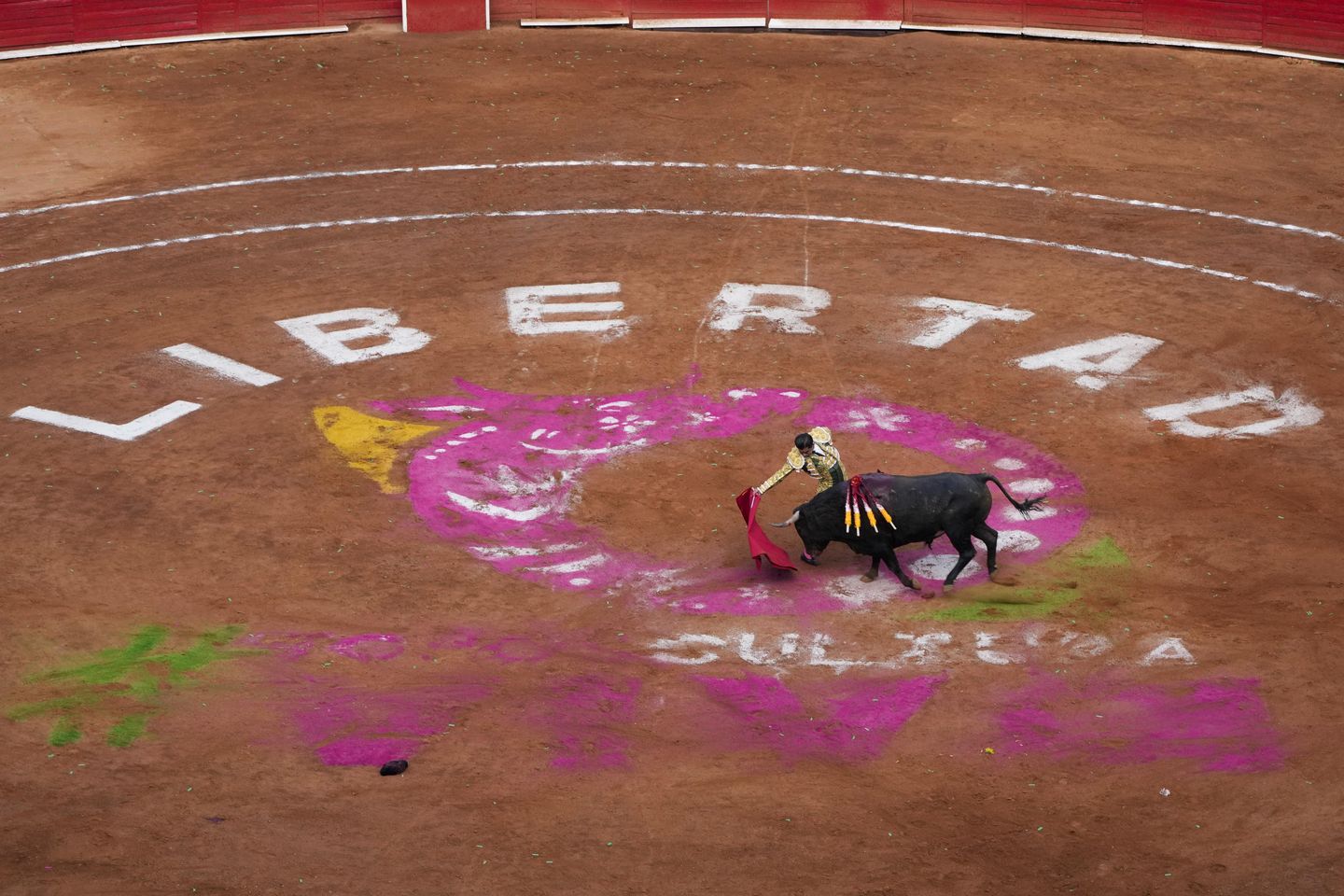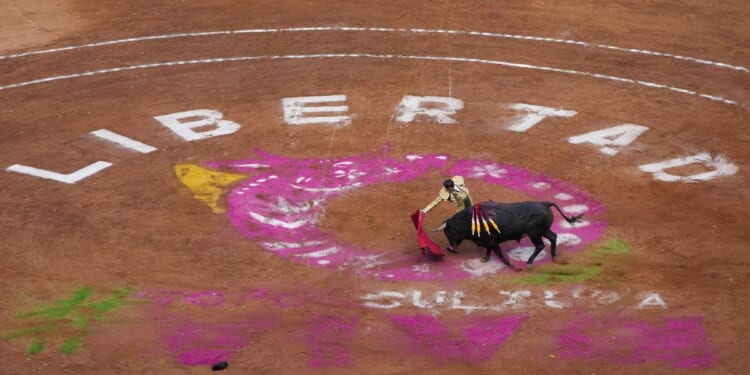
MEXICO CITY — With protesters outside a full arena, bullfights resumed in Mexico City on Sunday after the country’s highest court temporarily revoked a local ruling that sided with animal rights defenders and suspended the events for more than a year and a half.
The resumption of bullfights in the Plaza México, the largest bullfighting arena in the world, raised expectations of fans in the face of a lengthy legal battle between enthusiasts and opponents, who argue the practice violates animal welfare and affects people’s rights to a healthy environment.
Bullfighting is still allowed in much of Mexico. In the capital, the legal fight for its future is full of twists and turns.
The first bullfighter to enter the ring was the renowned Mexican matador Joselito Adame, with thousands of people cheering the return of “fiesta brava,” as bullfighting is also known in Spanish. “Long live freedom,” some shouted as the first bull entered an arena jammed with spectators.
In all, six bulls were fought Sunday, and all were killed.
Outside, hours before the formal beginning, about 300 people gathered in front of Plaza México to protest against bullfights. Some activists yelled “Murderers!” and “The plaza is going to fall!” while others played drums or stood with signs reading “Bullfighting is sadism.”
Police with shields stood by. The protest was mainly peaceful, although there were some moments of tension when some activists threw plastic bottles and stones.
“Why the bullfights were allowed to return when there is so much evidence of all the damage they do to a living being, such as the bull,” questioned activist Guillermo Sánchez, who was holding up a sign that read “Sadism disguised as culture, sport and tradition.”
Alfredo Barraza, another protester, said allowing bullfighting is a “setback in the fight for animal rights.” Barraza, who had his face covered with a paper mask in the shape of a bull, said he hopes Mexico City will at some point “be free of violent spectacles.”
Inside the Plaza, the mood was festive, with people eating, drinking and taking photos.
“I’m very excited,” said Aldo Palacios, who brought his two children and other relatives to the arena, not only to see the inaugural bullfight, but also to celebrate his 42nd birthday.
In May 2022, a local court ordered an end to bullfighting activities at Plaza México in response to an injunction presented by the civil organization Justicia Justa, which defends human rights. But the activities were set to resume Sunday because the nation’s Supreme Court of Justice in December revoked the suspension while the merits of the case are discussed and a decision is reached on whether bullfights affect animal welfare.
Another civil organization filed an appeal Friday on animal welfare grounds in a last-ditch effort to prevent the activity from resuming. A ruling was not expected before Sunday’s event.
Animal rights groups have been gaining ground in Mexico in recent years while bullfighting followers have suffered several setbacks. In some states such as Sinaloa, Guerrero, Coahuila, Quintana Roo and the western city of Guadalajara, judicial measures now limit the activity.
Ranchers, businessmen and fans maintain that the ban on bullfights affects their rights and puts at risk several thousand jobs linked to the activity, which they say generates about $400 million a year in Mexico. The National Association of Fighting Bull Breeders in Mexico estimates that bullfighting is responsible for 80,000 direct jobs and 146,000 indirect jobs.
The association has hosted events and workshops in recent years to promote bullfights and find new, younger fans.












